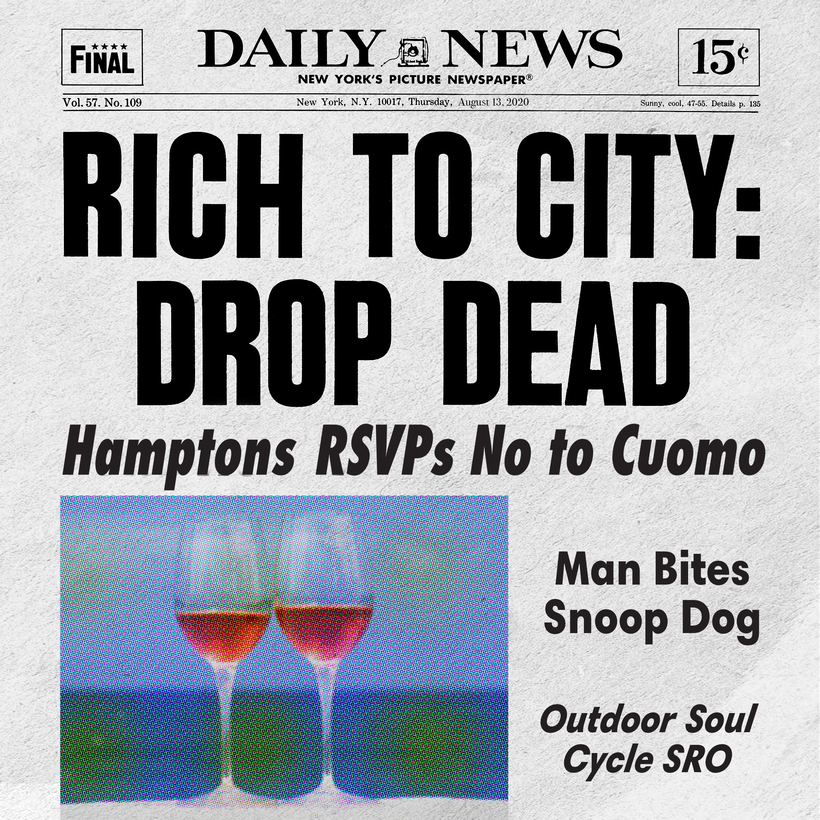At the Wölffer Estate Vineyard, fancy cars flow through the “hands-free drive-thru”, with customers buying cases of rosé in time for the weekend.
The nearby golf driving range, horse-riding stables and cult SoulCycle spinning gym, which has shifted outdoors, are bustling. On the residential roads, freckle-faced children cycle to the beach while Hispanic gardeners prune the hedges bordering the multimillion-dollar homes.

